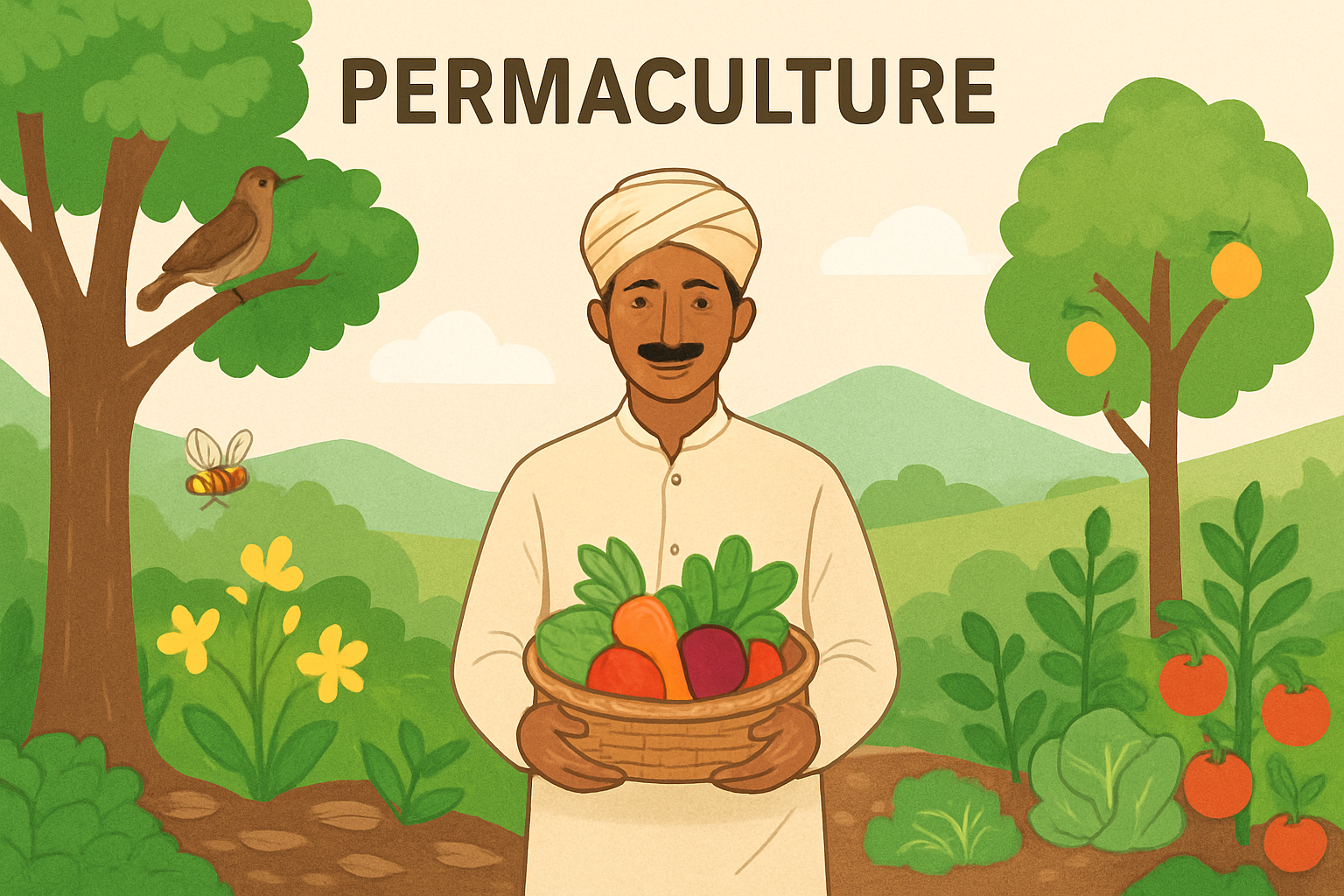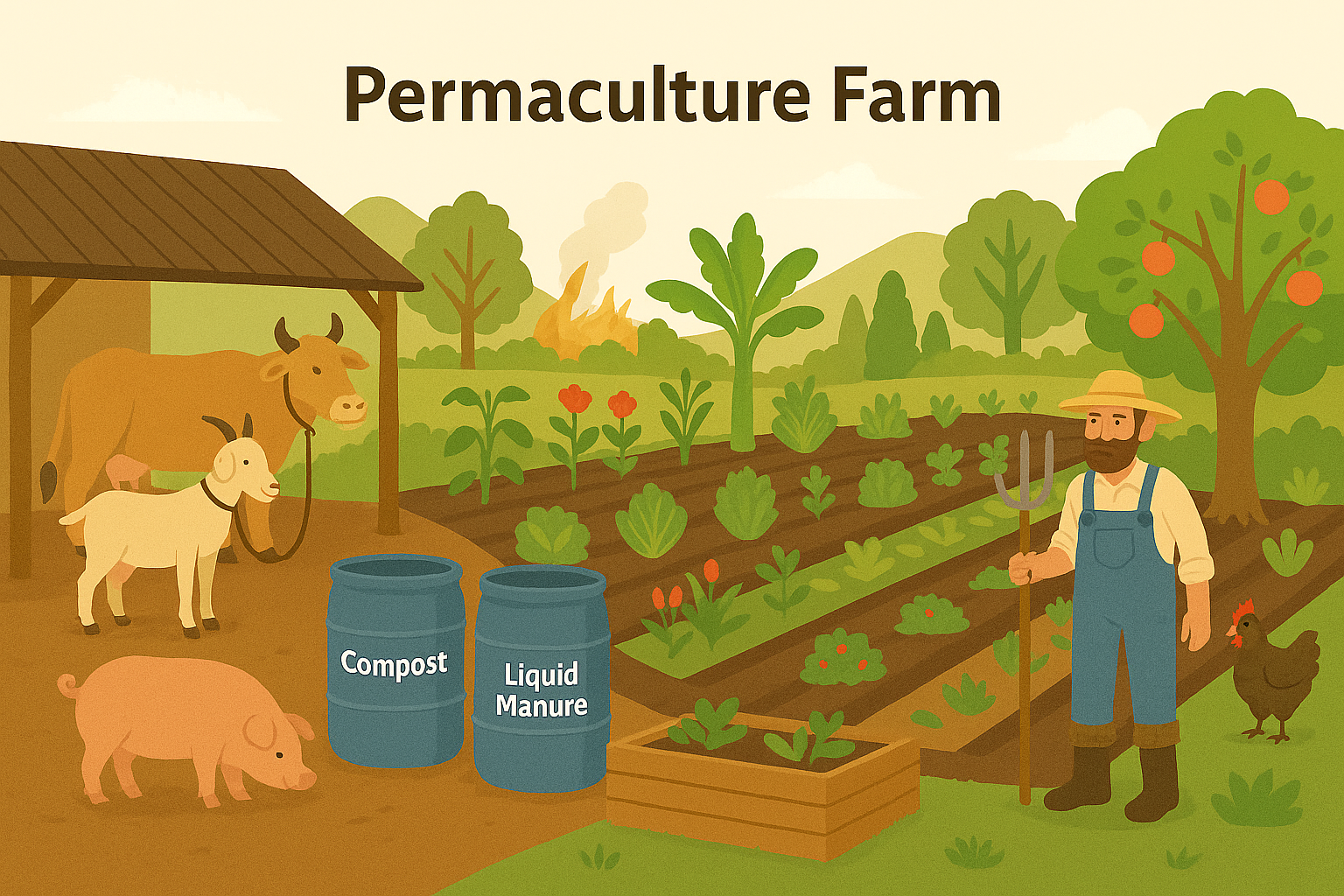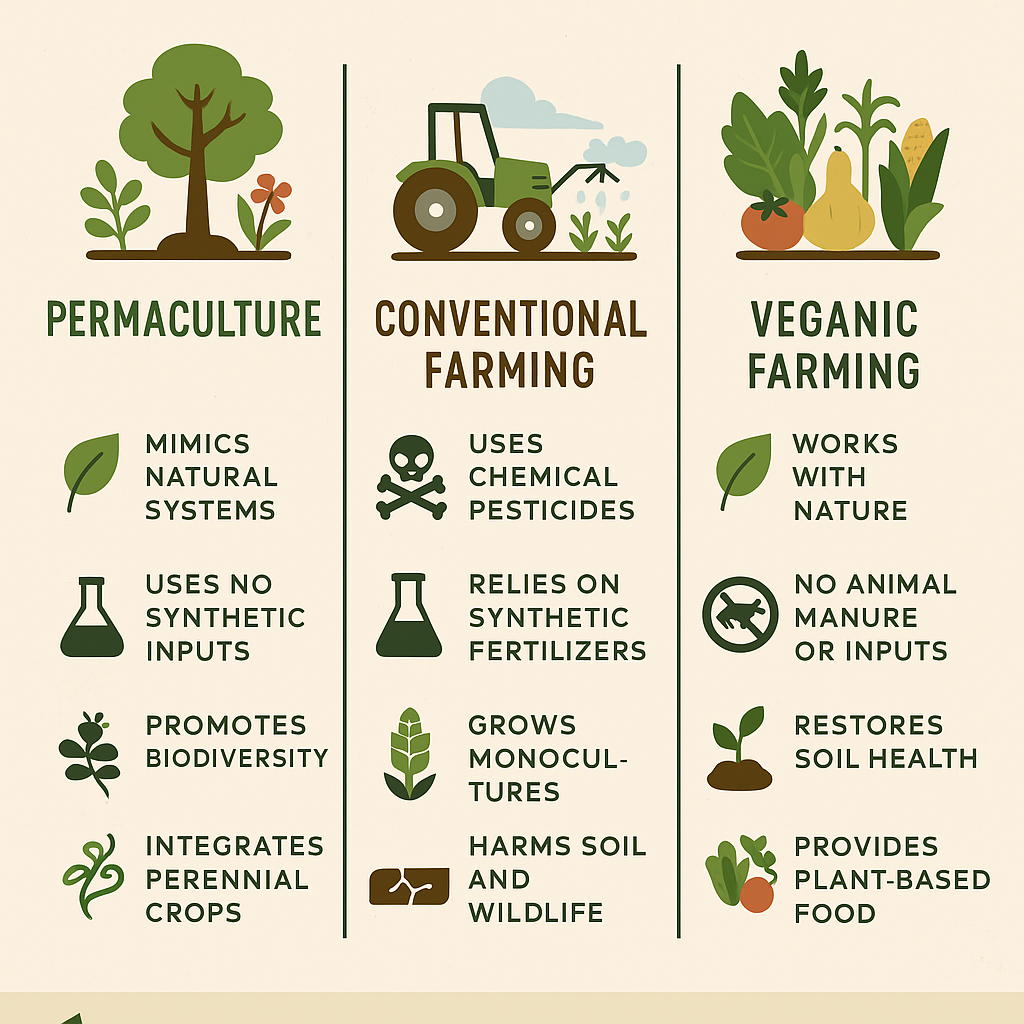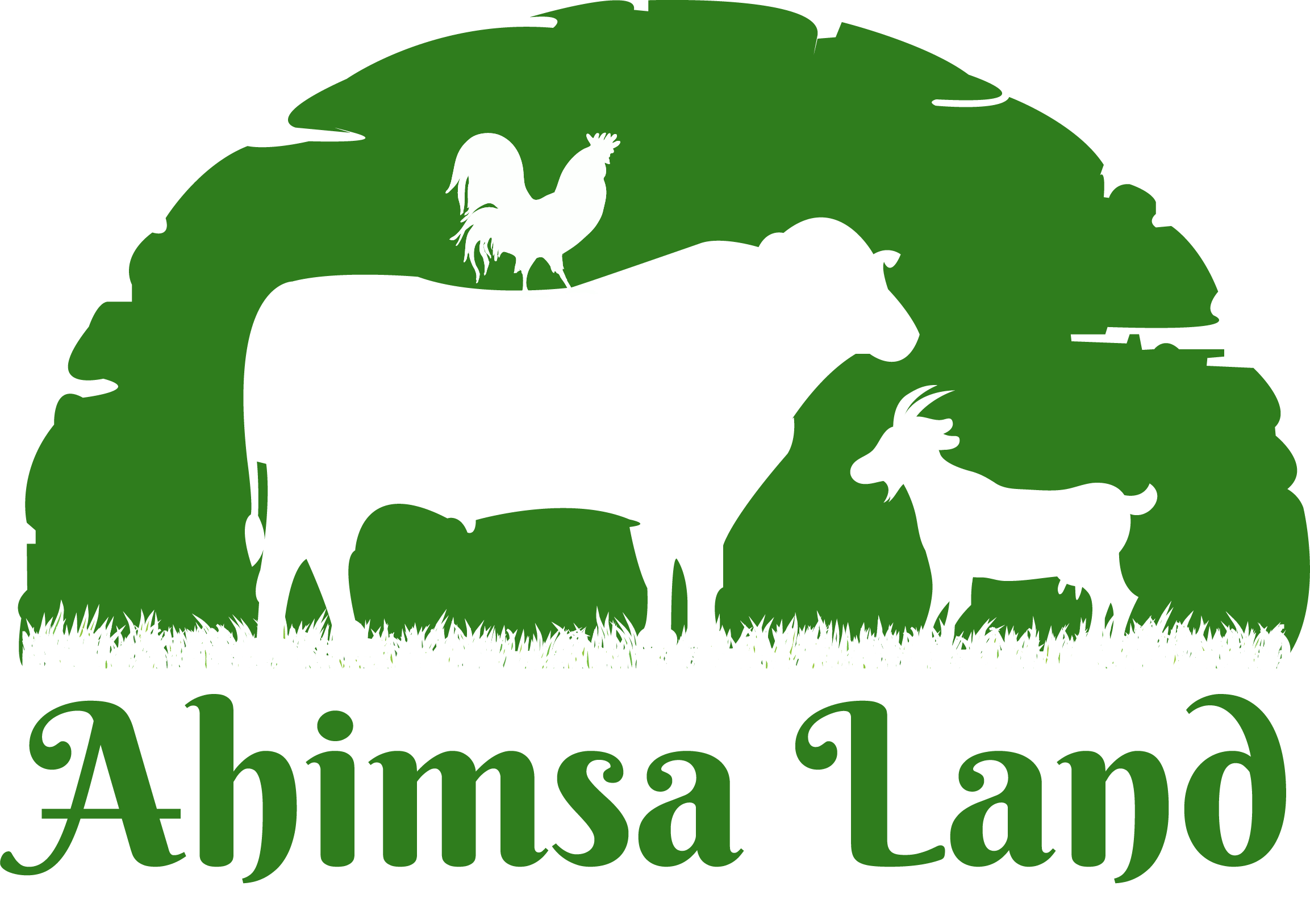
Permaculture is more than a method of farming; it’s a philosophy of living with, and not against, nature. The term was coined in the 1970s by Bill Mollison and David Holmgren in Australia. Initially meaning permanent agriculture, it later evolved to include permanent culture, recognizing the deep link between how we grow our food and how we live our lives.
From a grassroots idea, permaculture has grown into a global movement. Today, farmers, gardeners, and communities across continents, India included, are adopting its methods to regenerate land, strengthen biodiversity, and create sustainable food systems.
The Basics of Permaculture
Permaculture works by observing and mimicking natural ecosystems rather than imposing artificial, chemical-driven systems on the land. Its foundational principles include:
- Care for the Earth – Protect and regenerate natural systems.
- Care for People – Ensure healthy food, clean water, and community well-being.
- Fair Share – Use resources mindfully and share surpluses.
In practice, this means:
- Growing multiple varieties of crops together (polyculture or multi-cropping)
- Using natural water harvesting and soil regeneration methods
- Integrating trees, plants, and animals into mutually beneficial systems
- Avoiding chemical fertilizers and pesticides
- Prioritizing local and seasonal crops
Climate Change and Environmental Benefits
Permaculture actively fights climate change by:
- Increasing soil organic matter, which captures and stores carbon
- Encouraging tree cover, which improves rainfall patterns and cools local climates
- Eliminating fossil fuel-intensive fertilizers and pesticides
- Protecting biodiversity, which helps ecosystems adapt to climate stress
Health and Animal Use

On the whole, permaculture-grown food is free from chemical residues, making it healthier and more nutrient-dense. However, permaculture farms often integrate animals like chickens, ducks, sheep or goats, pigs, and even fishes and cows for manure, grazing, or pest control, viewing them as part of a self-sustaining ecosystem. But if we look at it deeply, animals are treated as tools or resources rather than individuals with their own rights and needs. Even when animals are not killed, their freedom is restricted, and their natural lives are shaped around human purposes. On the other hand, when adapted into veganic permaculture, animals are not used for manure or labor, removing them from the equation of exploitation.
Farmer Education and Transition
While permaculture is powerful, farmers need training and hand-holding to transition successfully, especially in areas accustomed to monocropping and chemical inputs. Adapting to permaculture involves:
- Learning to read the land and seasons
- Planning integrated crop and tree systems
- Building soil health naturally over time
Switching isn’t always immediate; it can take a few seasons for the land to recover and for yields to stabilize. But once established, permaculture systems are more resilient, less costly, and more sustainable than conventional methods.
How It Differs from Other Farming Methods
- Chemical Farming: Relies on external inputs, monocropping, and short-term yields, damaging soil and biodiversity.
- Organic Farming: Avoids chemicals but may still use animal manures and single-crop systems.
- Permaculture: Works with nature, uses no synthetic inputs, and designs whole ecosystems.

This makes permaculture naturally close to veganic farming, which goes one step further by avoiding animal exploitation entirely and relying on plant-based composts, mulching, and green manures.
In short: Permaculture offers us a way forward. A way of farming that feeds people, heals the land, nurtures biodiversity, and can be adapted to a vegan ethic for the ultimate sustainable solution.
Join the Movement for Ethical, Climate-Friendly Farming
🌱 Be Part of the Change
Whether you’re a farmer, vegan, animal rights advocate, or a conscious consumer, you have the power to transform how our food is grown.
Why It Matters:
- Farmers – Learn techniques that regenerate soil, reduce costs, and create resilient harvests.
- Vegans – Support food systems that are free from animal exploitation.
- Animal Rights Activists – Help protect wildlife habitats and farmed animals alike.
- Conscious Consumers – Choose food that’s better for your health, the planet, and all beings.
💡 Take Action Today:
- Learn the basics of veganic permaculture
- Support local farmers transitioning to sustainable systems
- Share this knowledge in your networks and communities
📩 Ready to start?
Sign up for free resources, workshops, and community events that connect people across the world to build a kinder, greener future at Sadhana Forest.
➡ Join the Movement Now by learning about permaculture from Manisha Laath Gupta and her farm called Aanandaa Permaculture Farm in Chandigarh.
